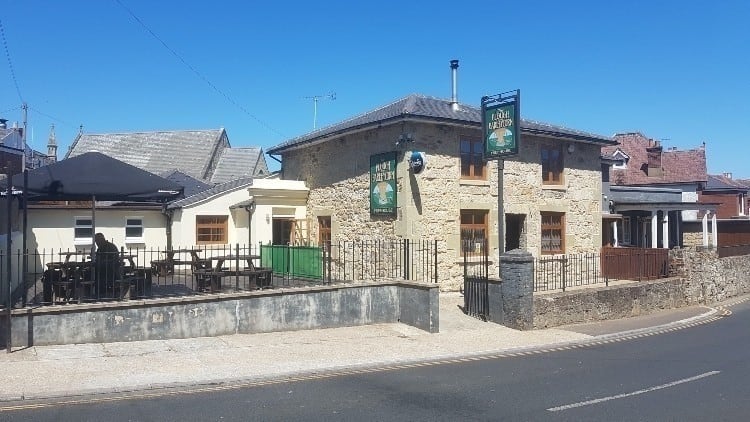In particular, rising interest rates have caused this “double whammy” for pubs, with increased borrowing rates followed by a decline in discretionary consumer spending, according to OakNorth Bank senior director Mohith Sondhi.
Sondhi said: “There are lenders definitely put off hospitality at the moment [thinking] ‘let's see how this plays out’, but that doesn't really help the publican who needs the money today and who says ‘I've got a great business and I want to grow my businesses’.
“[Pubs] get hit with a double whammy of higher costs and less demand for your product, so the industry has to keep itself relevant, value focused, and conscious of the consumer wallet.
“Hospitality will have a struggle, but lots of sectors will. There'll be some clear winners.
“[But] you can't tarnish everything with the same brush and the challenge in the financial services sector is lots of bank institutions do, which makes it difficult for the borrower to access capital, therefore, liquidity dries up, and they don't know where to go.”
This comes as earlier this month the Bank of England announced the base rate of interest would increase by 0.75% to 3%, reportedly the biggest single increase for three decades, in a bid to curb inflation.
However, according to Sondhi, even in this difficult market, there are things pubs can do to make their businesses seem attractive to lenders.
The senior director stated as investors, OakNorth, which earlier this year loaned £42m to the Inn Collection Group for refurbishment of 13 of its sites, look for a business that can show it has a good management team, a good business plan and performance, is focused on its value offering, controlled costs and keeps in touch with its client base.
Survival of the fittest
Sondhi added the best bars and pubs are the ones who have been “through the cycles” with the most successful businesses in this “resilient” sector the ones that work closely with their community and clients.
He said: “Liquidity has started to dry up and access to funding for people in hospitality is difficult, there's no doubt about that, but there are still people who are looking to lend and doing deals, such as ourselves.
“Humans will always want social interactions; it just becomes more of a survival of the fittest.”
Additionally, Sondhi stated while the “long-term fundamentals” of the sector still work, business closures and job losses are playing on consumers’ minds, which could further impact the sector’s growth.
He said: “The long-term fundamentals still work, the two things you'll have are weaker businesses folding and failing, the stronger businesses potentially struggling to get the capital they need to continue their growth and offer value and create jobs in the economy, that's the challenge of it.
“You can get yourself into a vicious circle if you think about it. If businesses start closing, more job losses, less money, people go out less, and they worry more. It hits home if you know someone's lost their job, all these things play in the consumers mind, hospitality is very much a confidence industry.”
However, financial specialists Interpath Advisory head of debt john Miesner, claimed this was “better” than it could have been and that Prime Minister Rishi Sunak has stabled the economy more recently, enabling the investors community to have a bit more trust in the UK’s economic policy.
Miesner added: “The overall theme is it’s better news than it could have been, but it's still going to be difficult for anyone who is borrowing money.
“We're looking at a peak [interest rates] that were 6% at the end of September, to now in November, down to [around] 4.5%.
Double-edged sword
“That's still very high in the context of the last 12 or 14 years, but it's better than it could have been.
“It's not quite as bad as everyone feared at the end of September, there has been a 1.5% improvement and lowering of rates in that period as the Government has shown more fiscal responsibility.
“But [the Government] is raising taxes and being less generous with its support schemes, and, actually, that generosity might have helped the pub industry a bit more, so it’s a double-edged sword.”
Echoing Sondhi, Miesner encouraged operators to show lenders their “resilience” but warned investors are continuing to be more “cautious” with hospitality businesses.
He said: “It's about emphasising resilience and defensiveness when pubs are looking to borrow money.
“But there's no doubt lenders are going to be more cautious because you can't fail to think the cost-of-living energy, higher mortgage rates, that's all going to put pressure on discretionary consumer spending.
“The people who lose their businesses are the ones that don't have the faith of their lenders, [who aren’t] being trusted and transparent with the providers of your capital. But I'm not pretending it's going to be an easy set of discussions for lots of people whose bottom lines are very squeezed.”
Additionally, Miesner urged operators to be “very thoughtful” to be taking on loans in the current climate.
He said: “The average pub will be paying high single digit percentages to borrow money; they need to be very thoughtful of exactly how much they need to get through what looks like it's going to be quite tough Christmas and tough trading year in 2023.”





